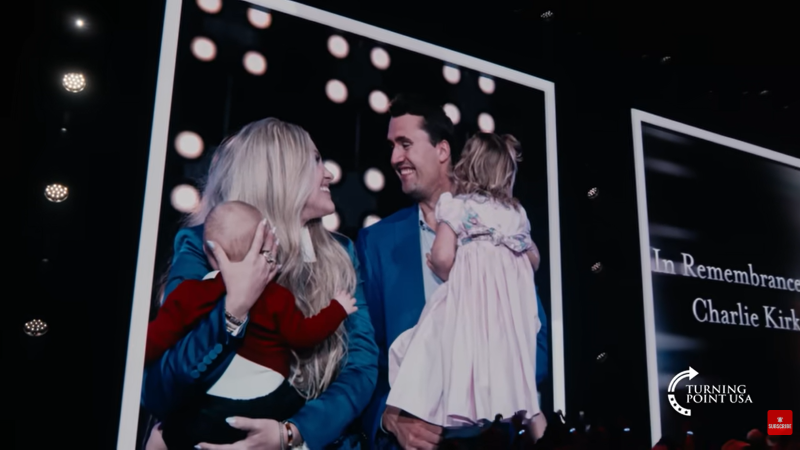Libertarian Shows Why Privatizing Marriage Is a Bad Idea
Sign up for a six month free
trial of The Stand Magazine!
The last place you’d expect to find a strong argument on behalf of government’s involvement in marriage is from a libertarian. But that’s exactly what we find in a piece written by Reason Foundation Senior Analyst Shikha Dalmia.
Rand Paul and other libertarian-ish folks have argued that the state should get out of the marriage business, as have uberleftists such as Naomi Wolf. A number of Christians agree, arguing that marriage ought to become an exclusively religious institution with no state licensing whatsoever.
As Dalmia puts it, this theory is that marriage should be left “to churches and temples, regardless of how these institutions define marriage, and let consenting adults of all sexual proclivities write their own civil union contracts.”
While the idea sounds attractive in theory, Dalmia points out the numerous problems with this approach. One quite pragmatic problem is that this approach is guaranteed to INCREASE the involvement of the state in domestic affairs, not reduce it.
The state would still have to register these private partnerships or marriages, or whatever they would be called, for them to have any legal validity, just as the state does with entirely private transactions regarding property purchases and titles and deeds. Thus government would still have to set the standards for what would count “as a legitimate marriage ‘deed.’”
The state could not simply accept any “marriage” created by any private party, whether by a church or by individuals. For instance, what if a group of polygamists turn in a marriage “deed” involving one husband and six wives? Or what about a yogi who performs “a group wedding uniting 19 people?”
Or what about “a church wedding...between a consenting mother and her adult son,” hardly an outlandish proposition any longer with the leftward drift of mainline denominations. No, the state would be obligated to set some kind of parameters around the kind of unions it is willing to recognize. The bottom line here is that it is impossible to get the state out of the marriage business.
The only way to do it would be to turn the matter entirely over to religious communities. So the Mormons would set their own rules, possible governed by historic LDS teaching and practice regarding multiple marriages, and the Muslims would have their own, likewise involving polygamy and divorce procedures.
In practice, allowing Muslims to set their own rules would mean that a wife could be left penniless and out in the cold anytime her husband decided to say to her “I divorce you” three times. She would have no legal recourse and no legal protection whatsoever. This hardly represents an advance for marriage and the rights of women.
And if someone decided he didn’t want to go the religious route at all, he wouldn’t be able to go to a justice of the peace, because the whole idea is the complete separation of state and marriage.
According to Dalmia, even libertarians recognize that marriage, just like private property, is a “pre-political right” that government “doesn’t grant, it guarantees.” As Christians, we entirely agree with the sentiment that marriage is “pre-political.” It was designed and defined by God at the dawn of time as the union of one man and one woman. The writer’s point is that you can’t free marriage from government any more than you can abolish property rights hoping to free them from government authority.
It is the state’s sanction of marriage that protects the right of a married couple to keep and raise their own children, which means neither the state nor disaffected in-laws can simply take their children away because they don’t like the way they are being raised. The state’s sanction of marriage protects the right to make medical decisions for a sick spouse, inheritance rights, and parental rights in case one of the parents dies.
Privatizing marriage, as Dalmia points out, would create utter havoc in the case of divorce. Says one libertarian writer, "[You'd] get a deluge of claims and counterclaims about child custody and paternity, as parents fought either to establish or relinquish custody without any clear advance guidance from the government about how they will be treated. It is hard to imagine the state being more in a private family's business than this." The state would be dragged right into the middle of domestic affairs whether it wanted to be there or not.
No, it is not possible to get the state out of the marriage licensing business. That alternative would be bad for adults (think of the Muslim wife) and absolutely horrible for children.
The Bible has had it right all along. Marriage is the union of one man and one woman, and the state has a proper role as a “servant of God” (Romans 13:4) to recognize and protect the institution of God-ordained marriage using the authority that God himself has delegated to it. As Peter says, the proper role of government is to “praise those who do good” (1 Peter 2:14).
Privatizing marriage is a bad idea, for adults (think of the precarious position of the Muslim wife) and fraught with risk for children. Life is unstable enough for modern children without removing the protections that God has designed the state to provide. If hard-core libertarians can recognize the fatal problems with the privatizing of marriage, Bible-believing Christians ought to be able to recognize them too.
The task before us is not to remove civil government from marriage altogether, which is impossible as well as unscriptural, but to redouble our efforts to undo the damage the Supreme Court has done and to restore the proper definition of marriage, both culturally and legally. Let’s get to work.

Sign up for a free six-month trial of
The Stand Magazine!
Sign up for free to receive notable blogs delivered to your email weekly.



















